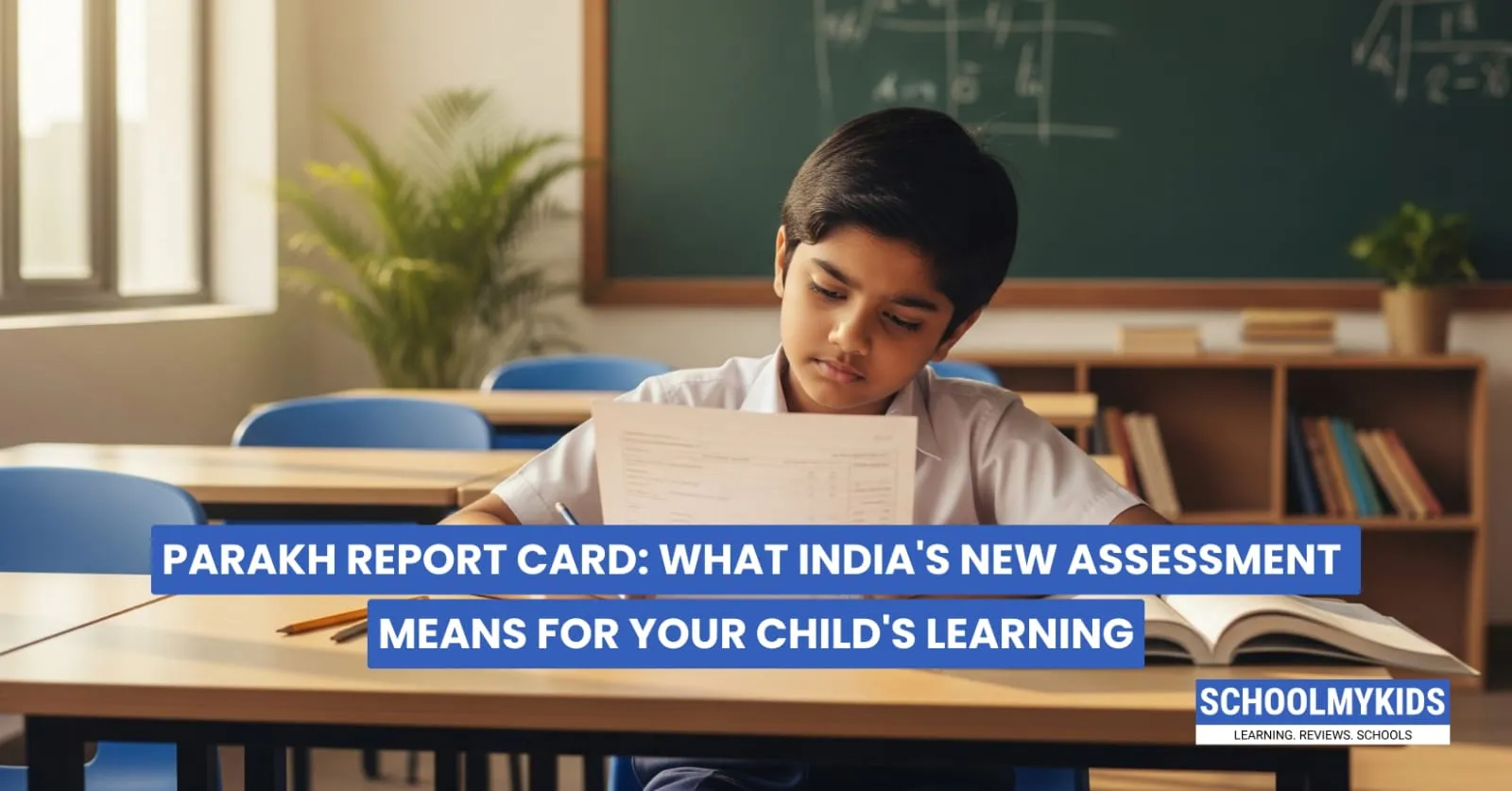Remember those old report cards that only showed marks in Math, Science, and English? Well, those days are coming to an end. India's education system is getting a major upgrade, and it's all thanks to something called the PARAKH Holistic Progress Card (HPC). This isn't just another fancy educational term – it's a game-changer that could transform how your child's learning journey unfolds.
What Exactly is PARAKH?
PARAKH stands for Performance Assessment, Review, and Analysis of Knowledge for Holistic Development. Launched in February 2023, it's India's first national assessment regulator, created as part of the National Education Policy (NEP) 2020. Think of it as the new referee in the education game, making sure all schools across India follow the same fair rules for assessing students.
The organization works under NCERT and has one clear mission: move away from the old-school method of judging students purely on academic scores. Instead, it wants to see the complete picture of what makes each child unique and talented.
The Revolutionary Holistic Progress Card
The traditional report card was like looking at your child through a tiny keyhole; you could only see a small part of who they really are. The HPC is like opening the whole door. It doesn't just tell you if your child scored 85% in Math; it shows you how they think, create, communicate, and connect with others.
Professor Indrani Bhaduri, CEO of PARAKH, explains that this new system aims to align school education with the government's vision of Viksit Bharat and Skilled Bharat. The focus has shifted from asking "What does your child know?" to "What can your child do with what they know?"
What Makes This Different?
Beyond Just Numbers
The HPC measures things that traditional report cards completely ignore:
- How well your child works with classmates
- Their ability to think creatively and solve problems
- Communication skills and emotional intelligence
- Self-reflection and personal growth
- Leadership qualities and empathy
Three Performance Levels
Instead of just pass or fail, the HPC uses three descriptive levels:
- Stream (Basic): Your child is learning the fundamentals
- Mountain (Proficient): They've got a good grasp on concepts
- Sky (Advanced): They're excelling and ready for bigger challenges
These aren't just labels; they're roadmaps showing exactly where your child stands and what they need to work on next.
How It Works Across Different Stages
Foundational Stage (Classes 1-2)
At this level, learning happens through play and exploration. The HPC checks if your little one is developing basic reading, writing, and social skills through fun activities rather than boring tests.
Preparatory Stage (Classes 3-5)
Here, children start developing critical thinking. The assessment looks at whether they can understand what they read, not just memorize it. Can they ask good questions? Do they show curiosity about the world around them?
Middle Stage (Classes 6-8)
This stage focuses on deeper subject knowledge while still maintaining the holistic approach. Students are assessed on complex problem-solving skills and advanced cognitive abilities.
The NCERT is currently working on developing HPC for secondary classes (9-12), which will eventually link with state board exams.
What This Means for Teachers
Teachers are getting extensive training to implement this new system. They're learning to create activities and questions that test competencies rather than just memory. More than 7,000 blocks across the country will receive this training.
The best part? Teachers now have WhatsApp groups and social media platforms where they can share ideas, ask questions, and learn from each other. It's like having a support network of thousands of educators working together to help your child succeed.
Parents as Partners
The HPC isn't just for teachers and students. It actively involves parents in the learning process. You'll get detailed insights into your child's strengths and areas for improvement, making it easier to support them at home. No more guessing what "needs improvement" actually means.
The Technology Behind It
Schools can now access digital platforms like the UDTeSchool app to manage these comprehensive assessments. This means real-time updates, easier tracking, and better communication between teachers and parents. Your child's progress is literally at your fingertips.
What Challenges Lie Ahead?
Implementing such a comprehensive system isn't without hurdles. Schools need to collect data from multiple sources, ensure consistency across different teachers, and manage the increased workload. That's why NCERT has made it flexible. Schools can implement the HPC once or twice a year based on their capacity.
The Bigger Picture
This shift represents India's move from a Knowledge Acquisition Model to Competency-Based Education. Instead of asking students to memorize and regurgitate information, the system now focuses on developing skills that will actually help them in real life.
Your child won't just know that 2+2=4; they'll understand how math helps solve everyday problems. They won't just memorize historical dates; they'll learn to think critically about cause and effect.
What Should Parents Do?
Stay informed and engaged. Ask your child's school about their plans for implementing the HPC. Understand that this transition might take time, but the end result will be worth it. Your child will develop into a more well-rounded individual, better prepared for the challenges of the 21st century.
Conclusion
The PARAKH Holistic Progress Card isn't just changing how we assess students; it's changing how we think about education itself. For the first time, India has a system that recognizes that every child is unique, with their own strengths and ways of learning.
This is more than just a new report card. It's a promise that your child's creativity, kindness, curiosity, and critical thinking skills matter just as much as their test scores. And in a world that's changing faster than ever, these are exactly the skills they'll need to succeed.








Be the first one to comment on this story.